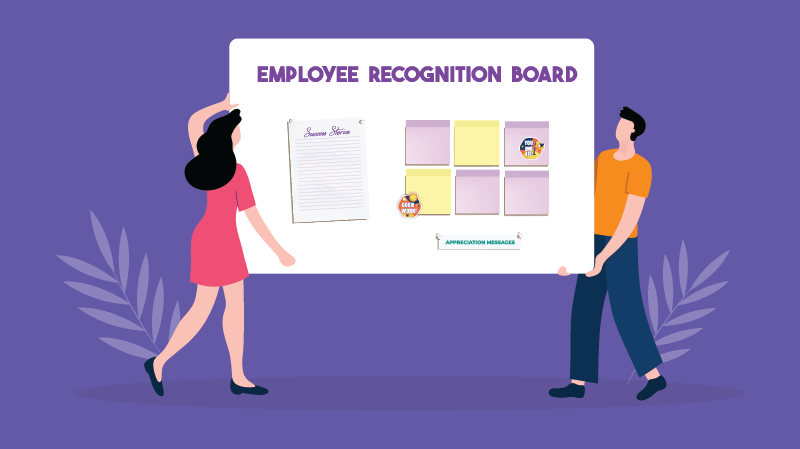Why Company Reward Programs Should Focus on Experiences
A positive company culture that forges strong employee bonds is essential to the success of any business. When your company invests in making employees feel appreciated and secure, there is a better chance of creating an enterprise that everyone feels loyal towards and more enthusiastic about fulfilling its goals. Stronger team bonds also minimize the microaggressions, apathy, and unethical actions that can systematically damage a company and the culture.
One of the elements that help to reinforce a positive company culture is a rewards and recognition program. When done correctly, it aids in acknowledging employees’ individual achievements and emphasizes how they contribute to everyone’s continued success.
Traditionally, rewards have been in the form of cash bonuses, gift cards, luxury items, perhaps the occasional bottle of wine. However, it’s worth considering whether there’s a more impactful way to reward employees.
Our society is placing an increasing emphasis on the value of experiences in place of material items. We’re going to look at how this can be utilized to make for a more effective rewards system. What can it do for individual employees and teams alike? How can it inform the success of the business?
Generational Relevance
Any entrepreneur knows how important it is to understand their customers’ needs to connect with them. But the same level of attention and learning also has to go into gaining a deeper understanding of employees. By knowing what motivates your employees and what they value, you have better opportunities to provide the kinds of rewards that make a difference.
The largest part of the workforce today is millennials, with Gen-Zers swiftly following in their wake. These generations are subject to lower salaries and higher student loans than those before them. Other types of financial hardship may also compound this situation — 79 million Americans today have some form of medical debt.
As those in debt may be negotiating repayment plans or navigating debt collection, they certainly cannot afford luxuries such as vacations, trips, or even the occasional concert or movie night. The company rewards program can help to fill in the experiential gap their generation faces.
It’s also worth noting that this approach reflects what the current workforce generation actually prefers to spend their disposable income on. These are the consumers who prompted the rise of the experience economy. They aren’t driven by gaining material wealth; instead, they prioritize the personal, memorable, and cultural value you get from experiences. You can’t motivate staff by offering rewards that don’t particularly appeal to them. By integrating memorable experiences into your program, you get to give a much more meaningful recognition.
Meaningful Rewards
When companies design rewards programs, they need to be wary of the potential hedonic treadmill effect. It is the term given to the idea that the first time we come across a stimulus can be great, but its novelty wears off the more we are exposed to it. Giving objects as rewards can become less meaningful; the more it is overused, the emotional gratification of receiving the item reduces considerably.
So, how do gifting experiences help us avoid this issue?
1. They’re more personal
Things, even if you engrave them, have a limited scope for personalization. Experiences, on the other hand, are subjective. Even if the recipient has visited a specific city before or undertaken a similar activity, the circumstances and people involved will generally be different. That means that giving experiences has the opportunity to have a more individualized impact.
2. They are holistically stimulating
Few material gifts have the potential to stir our physical, mental, and emotional selves— aside from an office punching bag. Experiences bring the potential to introduce employees to new and varied circumstances. Consider rewarding employees with mentally and physically challenging activities and set in environments that inspire awe; mountain climbing, cave exploration, and watersports.
3. They can be shared
Experiences as rewards can help employees build incredible memories. What can make those memories all-the-more valuable to us is the ability to share them with others. In particular, millennials and Gen-Zers prefer experiences because they present opportunities to take unique photographs and share them on their social media channels. It isn’t just about online bragging rights or that rush of dopamine from getting additional “likes” — this is about making connections and contributing to a collective experience.
Reinforcing Company Values
One of the best reasons to adopt an experience-led rewards program is that it can help to reflect and reinforce what is essential to the business. In order to build a strong and consistent values-centric culture throughout the company, that culture needs to be evident in every aspect of the business. That includes how you reward employees.
It could take different forms. Companies that prioritize employee development can award staff with additional time to engage in personal projects when they hit targets. Businesses that promote family values can award day trips for workers and their loved ones or provide extra days off.
Experiential rewards can also double up as team-building activities. Days out together with colleagues are more meaningful than objects because our experiences are different depending on the people we share them with. It gives the group the opportunity to create unique memories together and forge stronger bonds.
For the rewards program to be a practical aspect of the company culture, it’s crucial to commit to the regular re-evaluation of all benefits and perks. Audit each area — bonuses, wellness plans, flexible working arrangements, even parking spaces — and assess whether benefits and perks are consistent with the message that the company wants to communicate to its employees and the public.
Create a team that is responsible for this area. Meet regularly to review the program and produce more consistent solutions with its intended path of action.
Conclusion
When employees hit goals that boost the company’s success, it’s only right that leadership should provide rewards. Offering experiences in place of things keys into some of the values today’s workforce finds most important. It gives workers opportunities to connect to the world in ways that can positively impact their lives. It also sends a unique message to employees about what the business considers valuable — their holistic wellbeing, rather than just their collection of disposable objects.



















